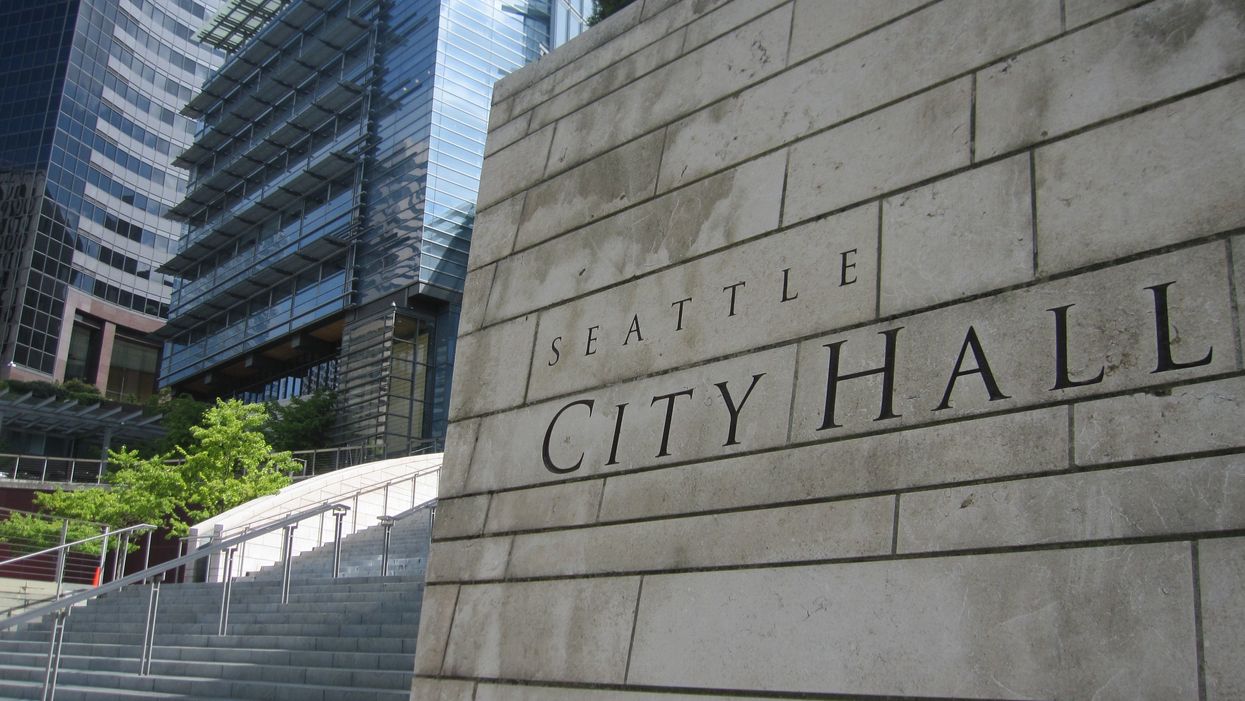This story was updated Thursday evening with new developments.
Taxpayer-funded political donation vouchers in Seattle can continue because they don't restrict any voter's free speech rights, the Supreme Court of Washington ruled Thursday.
The unanimous decision, upholding the only program of its kind in the nation, is a potential milestone for the cause of revamping the way money flows in politics.
While the city's vouchers are unique, the judicial blessing is nonetheless welcome news for the public financing systems created in seven other cities and counties across the country since Seattle established its program four years ago. It is also a sign that various ideas for government subsidizing of campaigns — which are under discussion in dozens of local jurisdictions, have advanced halfway through Congress this spring and also become a topic on the Democratic presidential campaign trail — will remain open to debate without being readily swept away as violating the Constitution.
Seattle's system "does not alter, abridge, restrict, censor, or burden speech. Nor does it force association between taxpayers and any message conveyed by the program. Thus, the program does not violate First Amendment rights," Justice Steven Gonzalez wrote for all nine justices on the state's top court.
Catie Kelley of the Campaign Legal Center, which helped defend the system in the case, hailed the decision as "a good sign and will give confidence to other jurisdictions pursuing public financing."
Attorneys for the property owners said they would likely appeal to the U.S. Supreme Court.
In a 2015 referendum, the city voted to provide as many as four "democracy vouchers," worth $25 each, to every eligible voter in Seattle to spend in local elections. (Only candidates who agree to spending limits, and to taking only small-dollar donations, can accept the scripts.)
The aim was to boost civic engagement and partly redistribute the wealth — concentrated in a relatively small share of wealthy interests — that had financed municipal elections in the past. To fund the program at $3 million a year for a decade, Seattle voters also approved a tax increase costing the average homeowner $8 annually.
The first results, in 2017, were mixed. There were twice as many donations by voucher than by cash or check, and only 4 percent of residents used their vouchers, according to a University of Washington study. Most were claimed by the sorts of older and white voters whose participation rate in city elections was already high. And bureaucratic problems delayed the delivery of some voucher money to the politicians.
Still, 46,000 vouchers worth $1.1 million went to about a dozen candidates, several of whom said they would never have considered running without the taxpayer subsidy.
At the same time, a lawsuit was filed by the libertarian-leaning Pacific Legal Foundation on behalf of two Seattle property owners alleging the system violated their free speech rights by making them — through their property taxes — support candidates they opposed.
The argument was rejected outright by Thursday's ruling, meaning the system will stay in place for this year's city council elections, and they system's acceptance is blossoming. By the start of July, with the elections four months away, 32 candidates have received almost 49,000 vouchers worth $1.2 million.
The political overhaul bill passed this spring by the U.S. House with only democratic votes, dubbed HR 1, would create a system where candidates could get $6 in federal funds for every $1 raised from individuals in checks of $200 or less. All seven Democratic senators running for president have endorsed that bill, but their Republican colleagues says it will never get a vote. In addition, Kristen Gillibrand of New York has worked to boost her low standing in the polls by touting a voucher proposal based on Seattle's system.
Correction: Earlier versions wrongly said Seattle had instituted the first public campaign financing of any kind in the country, and that its voucher system had been replicated in other cities.




















Trump & Hegseth gave Mark Kelly a huge 2028 gift